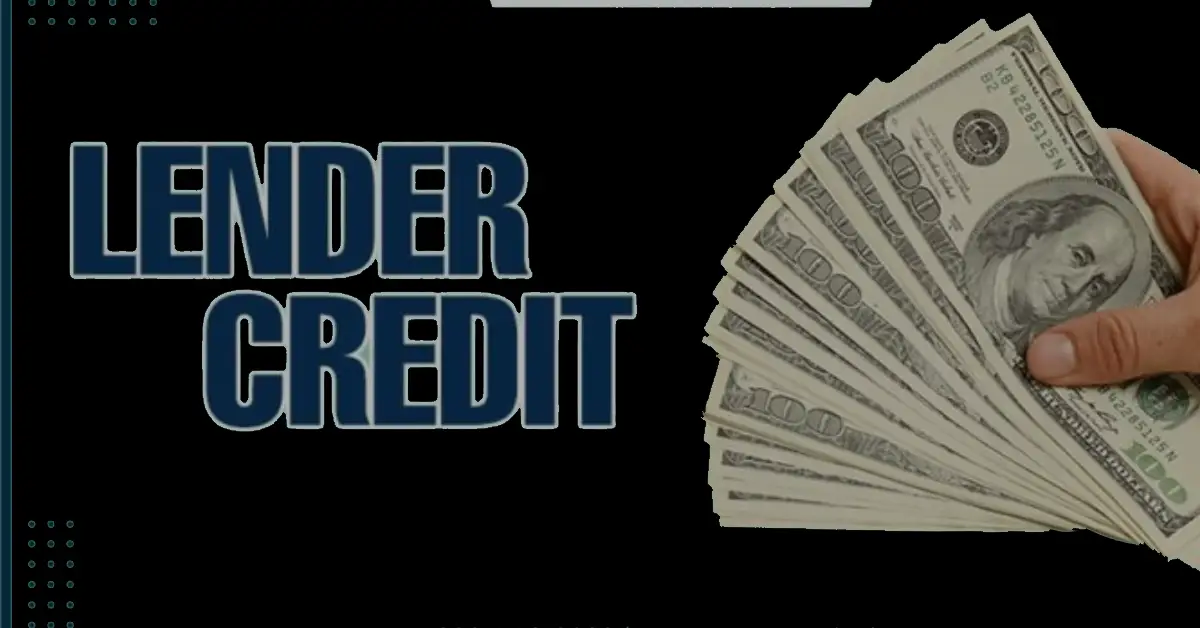Learn about lender credit, a financing tool for mortgage lenders that can reduce upfront mortgage costs. Understand how lender credits work, it works, its benefits, and potential drawbacks in home buying.
When buying a home, you might hear the term “lender credit.” This can be a helpful tool to reduce the upfront costs of getting a mortgage. But what exactly is the term, and how does it work? In this article, we will explain lender credit in simple terms. We’ll look at how it can benefit homebuyers, what to watch out for, and how it fits into the larger picture of home financing.

- Est. APR = 9.95% - 14%
- Loan Amount = $150,000 - $3,000,000
- Minimum FICO Score: N/A
5
editorial team. We score based on factors
that are helpful for consumers, such as
how it affects credit scores, the rates and
fees charged, the customer experience,
and responsible lending practices.

- 24/7 Support
- Bridge & Rental Loans
- Equal Housing Opportunity
5
editorial team. We score based on factors
that are helpful for consumers, such as
how it affects credit scores, the rates and
fees charged, the customer experience,
and responsible lending practices.
- Check Your Eligibility
- Equal Housing Opportunity
5
editorial team. We score based on factors
that are helpful for consumers, such as
how it affects credit scores, the rates and
fees charged, the customer experience,
and responsible lending practices.

What Is Lender Credit?
Lender credit is a sum of money the mortgage lender gives to help cover some of the closing costs when you buy a home. Closing costs include fees for things like predictions, inspections, and legal paperwork, which can add up to thousands of dollars. Reducing these costs can make buying a home more affordable.
How Does Lender Credit Work?
When you take out a home loan, the lender can offer you a certain amount of money to help pay for the closing costs. In return, mortgage lenders make you agree to a slightly higher interest rate on your loan. This means you’ll pay a bit more each month over the life of your mortgage, but you won’t have to come up with as much money to cover closing costs upfront.
For example, let’s say you need $3,000 for closing costs. Your lender might offer you a credit of $3,000, but your interest rate might go up by two points, from 3.5% to 3.75%. This trade-off can make buying a home easier if you don’t have a lot of cash saved up to pay a larger down payment or for upfront.
Its Benefits
Credit has many advantages that can help homebuyers, especially those who have suffered from abnormal financial conditions. Here are some of the benefits:
Lower Upfront Costs:
The main benefit of lender’s credit is that it reduces the dollar amount amount of money or debt you need to pay when you close on your home as an upfront payment. This can help you buy your home sooner and lower monthly payments.
Helps with Budgeting:
Reducing upfront costs can help you manage your budget better. You won’t need to save as much money before buying a home.
Flexibility:
Lender credit can be adjusted to lower interest rate to fit your needs. You can choose how much credit you want your lender credits your loan application for, which will affect loan balance and your interest rate accordingly.
Drawbacks of Lender Credit
While lender credit score alone can be helpful, it’s important to understand its downsides to manage your finances:
1. Higher Interest Rates:
Accepting lender’s credit means you’ll have a higher interest rate on your debt than your mortgage. This means you’ll pay more over the life of your lender the loan.
2. Long-Term Costs:
While you save money upfront, the exchange for a higher interest rate means you could pay much more interest in total over the life of the loan life of the loan over years.
3. Complex Decisions:
Deciding how much lender’s credit to take and balancing it exchange for a higher or lower monthly payment, along with the interest rate can be complicated. Understanding how different options will affect your family member finances now and in the future is important.
When to Consider Lender Credit
Lender credit can be a good option in certain situations. Here are a few scenarios where it might make sense:
Limited Savings: If you don’t have much money saved for closing costs, credit can help you buy a home without needing a large amount of cash upfront.
Short-Term Plans: If you plan to sell or refinance your home at one point in a few years, paying a higher interest rate and higher monthly payment might not matter as much. Lender credit can help you get into the home sooner.
Other Expenses: If you need to keep more than one point of money available for moving costs, renovations, mortgage payments or other expenses, lender credit can provide enough cash for the flexibility you need.


- Est. APR = 9.95% - 14%
- Loan Amount = $150,000 - $3,000,000
- Minimum FICO Score: N/A
5
editorial team. We score based on factors
that are helpful for consumers, such as
how it affects credit scores, the rates and
fees charged, the customer experience,
and responsible lending practices.

- 24/7 Support
- Bridge & Rental Loans
- Equal Housing Opportunity
5
editorial team. We score based on factors
that are helpful for consumers, such as
how it affects credit scores, the rates and
fees charged, the customer experience,
and responsible lending practices.
- Check Your Eligibility
- Equal Housing Opportunity
5
editorial team. We score based on factors
that are helpful for consumers, such as
how it affects credit scores, the rates and
fees charged, the customer experience,
and responsible lending practices.
Comparing Options
When considering a mortgage lender credit you, it’s important to compare your options. Here’s how you can do that:
Calculate the Total Cost: Look at the loan estimate for the total cost of your mortgage with and without lender credit. This full loan estimate includes both the upfront costs and the long-term interest payments.
Consider Your Budget: Consider higher monthly payments against your current savings and how much you can pay down payment for upfront. Also, consider other factors in your monthly budget and how your monthly payment at a higher interest rate will affect your payments.
Talk to Your Lender: Ask your lender to show you different scenarios with various amounts of lender credit and lower interest rate rates. This can help you see the trade-offs clearly.
Example
Imagine you’re buying a home and need $5,000 for closing costs. You have two options:
No Credit: You pay the $5,000 upfront fee and get a 3.5% interest rate on paying your mortgage.
With Credit: The lender gives you $5,000 to cover the closing costs, but your interest rate is 3.75%.
In the first loan option, you need to save more money before buying the home, but your monthly payments will be lower. In the second option, you need less money upfront savings the home purchase, but your monthly payments will be higher due to the loan amount higher interest rate.
It is why lender credits are a useful tool for homebuyers who need help covering one percent more cash the upfront costs of buying a home. By offering a trade-off between lower upfront costs and higher long-term payments, lender credit can make homeownership more accessible. However, it’s important to carefully consider the long-term implications of lender credits and compare different options to make the best decision for your financial situation.
Remember, buying a home is a big decision, and understanding tools like lender credit can help you navigate the mortgage process much more confidently. Whether you choose to use this type of a credit score or not, being informed will help you make the best choices for your future.
Frequently Asked Questions
Is it better to take lender credit or lower interest rate?
However, accepting loan credit reduces closing expenses and late payments. In the alternative, you may get lower interest rates on a long-term loan, so the monthly mortgage payments will decrease during that time.
Can you refinance with lender credits?
Credits are the opposite of discounts loans; they cost more upfront and can reduce costs. Depending on the situation a credit is used, a loan may be able to be refunded by refinancing. It may even require the payment of reserves from the lender. April 8, 2021.
Can lender credit exceed closing costs?
Sellers’ and lenders’ credit is not limited to the combination of total closing costs and prepayment. Unfortunately, Fannie Mae does not permit sellers or lenders to use the cash to pay down the down payment. This credit can be classified by Fannie Mae different lenders as an increased interest rate down-based contribution.
Can lender credits be removed?
The FAQ provides that lender credit is not reduced when the change in loan amount occurs or another trigger occurs under 12 CFR 1066(e)(3). Consult TILARA-RESSPA FAQs on Disclosures Integrated Disclosure – Loan Credits, No. 09.

 Read More
Read More 





One Response